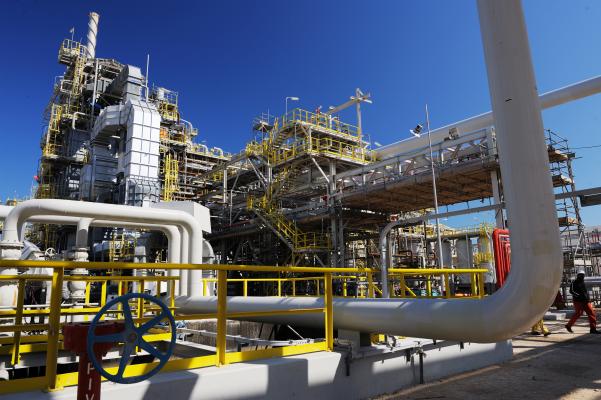By Linnea Lueken
The United States Senate voted to rescind changes made under President Donald Trump to strict Obama-era limits on the release of methane gas related to oil and gas production and transportation.
Congressional Review Act in Play
With a vote of 52 in favor of rolling back the Trump administrations methane regulations and 42 opposed, Senate Democrats with three Republicans, used the 1996 Congressional Review Act (CRA) to pass S.J Res. 14. S.J. Res. 14 reinstates the Oil and Gas New Source Performance Standards, regulations limiting methane emissions from oil and gas industry activities previously adopted by the U.S. Environmental Protection Agency (EPA) in 2012 and 2016.
The Obama era regulations required oil and gas operators to check every six months for methane leaks from pipelines, storage tanks and other equipment installed after 2015 — and plug any leak within 30 days after it is detected.
The Trump administration rescinded the Obama era restrictions and replaced them with methane limits, timelines for compliance, and penalties of its own in late August 2020.
Under the CRA an executive agency must submit a finalized rule to Congress before it becomes law. Congress then has 60 legislative days to review the act and, by a simple majority, pass a resolution overturning the regulation. The clock for review resets when Congress is not in session. As a result, although the Trump administration finalized the rules in August, because Congress was out of session during the election, on weekends and holidays, the 60 day calendar for review extended into May 2021. On April 28, the Senate voted to rescind the Trump era rules, sending the resolution onto the U.S. House of Representatives. A vote there is expected to take place in May.
Expediting Methane Limits
Because Congress used the CRA to rescind the Trump era regulations, the Obama-era regulations automatically became the the law of the land once again, without EPA having to go through the months long-process of writing new rules.
A statement made by the Biden administration after S.J Res. 14 was approved, says the Senate’s action will pave the way for further actions by EPA to limit greenhouse gas emissions and thus meet the Biden’s pledge to cut U.S. greenhouse gas emissions by at least 50 percent by the end of the decade.
Decreasing Emissions with Increased Production
Rescinding Trump’s methane regulations is unnecessary because companies were, for economic reasons, already limiting methane leaks and releases, says Tim Benson, policy analyst at The Heartland Institute, which publishes Environment & Climate News.
“Reinstating the New Source Performance Standards is unnecessary, as industry is already taking proactive measures to limit methane emissions,” said Benson. “Operators don’t need the extra costs of compliance that these regulations will surely entail, which will almost certainly be passed along to consumers in the form of higher prices.”
Even though there has been significant increase in oil and gas pipeline infrastructure and fossil fuel production, methane emissions have declined significantly, says Benson.
“According to the EPA’s 2021 Greenhouse Gas Inventory, oil and gas methane emissions have decreased 16.6 percent since 1990, while natural gas production has increased 96 percent over that time period and oil production has also increased by 66 percent.” said Benson. “So even though the United States has added over 370,000 miles of new gas pipelines over that time to keep up with nationwide demand, methane emissions have still fallen by 69 percent in natural gas distribution systems, while emissions in natural gas transmission and storage systems decreased by 25 percent.
“It is already in the best interest of every oil and gas worker to ensure methane and other greenhouse gas leakages do not occur, and no regulation will change that, or is needed to ensure it,” Benson said.
Burning Money
It has always been more economical for companies to capture as much natural gas as possible instead of having to flare or vent it, says Robert L. Bradley Jr., CEO and founder of the Institute for Energy Research.
“The economic decision is to market natural gas if profitable, and vent/flare if not, a principle has operated from the beginning of the industry and certainly until recent years.” Bradley said. “The amount of captured-versus-released gas has increased proportionally over the years as natural gas has become more valuable and gas pipelines have expanded and improved.”
These methane emission regulations, coupled with the push to reduce the number of new gas pipelines, will result in more flaring downstream at chemical plants and power stations, when there is more gas than can be stored safely or used, Bradley says.
“The saying ‘it is not easy being green’ applies to natural gas,” said Bradley. “To the extent regulation forces the capture of gas, there is that much more to be flamed downstream, and to the extent that the Left discourages pipelines, the more the pressure there is to release natural gas for reasons of safety.
“So, the ‘greenest’ strategy is to encourage pipelines and let economics take over from there,” said Bradley. “Fear of global warming is misplaced in any case, because methane is a short-lived gas in the atmosphere, and warming has been overestimated by climate models that cannot replicate real climate.”
Linnea Lueken (linnea.heartland@gmail.com) writes from Laramie, Wyoming.


























